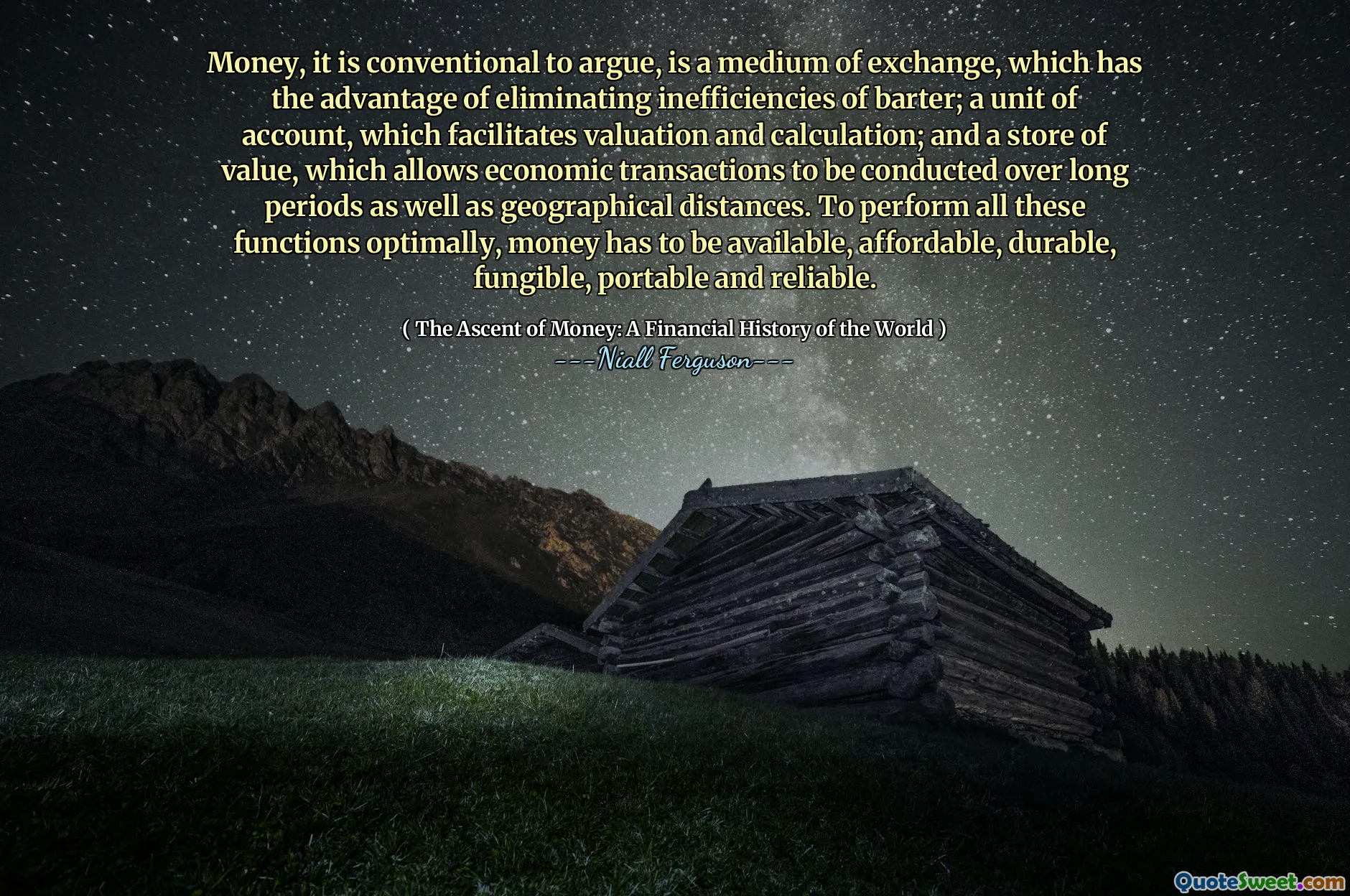
Money, it is conventional to argue, is a medium of exchange, which has the advantage of eliminating inefficiencies of barter; a unit of account, which facilitates valuation and calculation; and a store of value, which allows economic transactions to be conducted over long periods as well as geographical distances. To perform all these functions optimally, money has to be available, affordable, durable, fungible, portable and reliable.
Money serves several key functions in an economy, primarily acting as a medium of exchange that resolves the limitations of barter systems. It also functions as a unit of account, allowing for the valuation and calculation of goods and services, and as a store of value, enabling transactions over time and distance. These roles are critical for efficient economic interactions.
To effectively fulfill its functions, money must possess certain characteristics: it should be readily accessible, affordable for users, durable against wear and tear, fungible so that each unit is interchangeable, portable for ease of transaction, and reliable in its value. These qualities ensure that money can maintain its effectiveness across various economic contexts.











